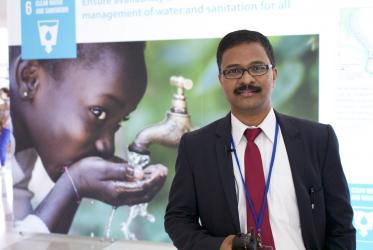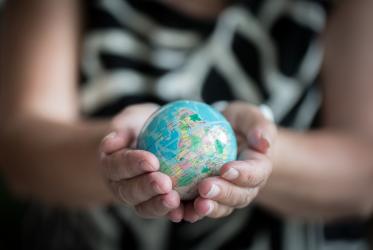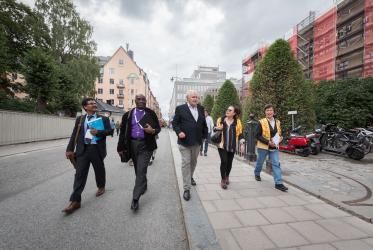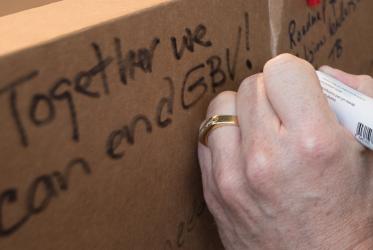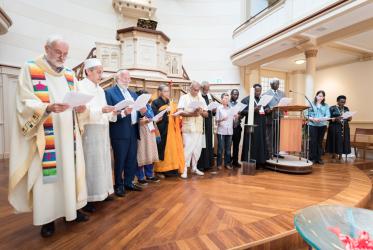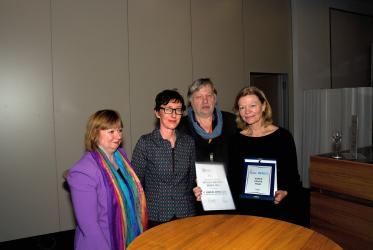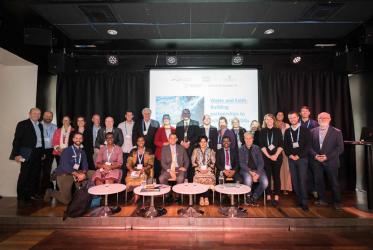Displaying 41 - 60 of 94
19 February 2019
WCC Executive Committee envisions future for one ecumenical movement
08 November 2018
WCC Executive Committee approves Communication Strategy
08 November 2018
Romani people seek “lives of decency, dignity, and justice”
27 September 2018
Assisi: On the ecumenical pilgrimage into a more sustainable future
03 September 2018
Faith and Water: Translating words into action
30 August 2018
What difference does dressing in black make?
02 August 2018
Working toward an AIDS-free generation
26 July 2018
Building bridges of faith in the HIV response
25 July 2018
Building Bridges in the global HIV response
25 July 2018

